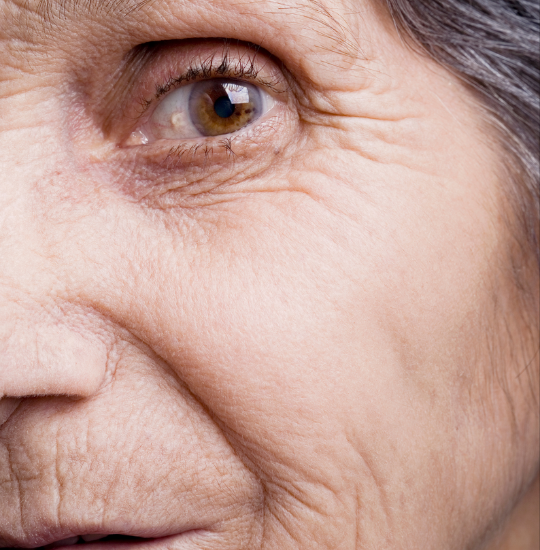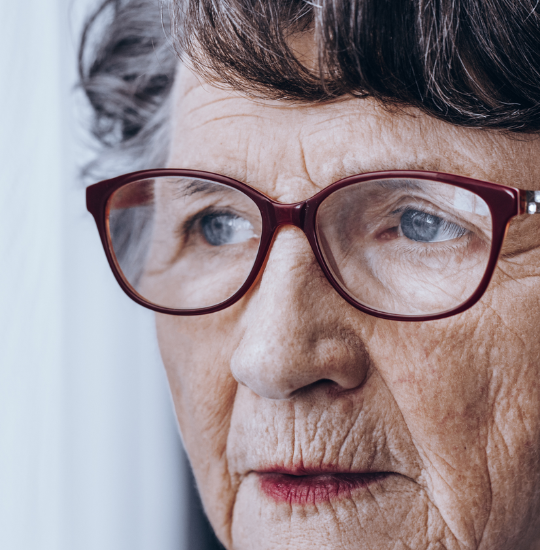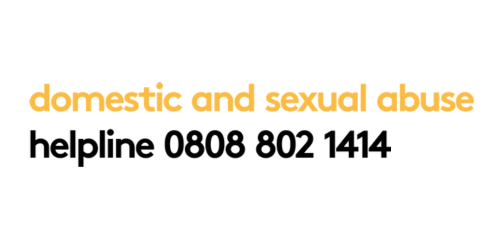What is elder abuse or abuse of older people?
We have joined forces with Hourglass Northern Ireland to highlight how older people experience coercive control/controlling behaviour, physical abuse and sexual abuse.
Call us now on 0808 802 1414
or email help@dsahelpline.org
Through our joint campaign with Hourglass, a UK-wide charity dedicated to calling time on the harm, abuse, neglect and exploitation of older people, we hope to raise awareness of the abuse that can – and does – take place in intimate relationships, and also raise awareness about the support available via our Helpline and Hourglass’ community response services.
Demonstrating the prevalence of what was historically termed ‘elder abuse’ and is now more commonly referred to as the abuse of older people, in our society, Hourglass estimates that 1 in 5 older people in the UK are victims of abuse. That would mean in Northern Ireland over 100,000 older people experience abuse.
Additionally, the Police Service of Northern Ireland recorded 2,522 domestic or sexual abuse crimes against people aged 55 or over in 2023/24, representing approximately 10% (1 in 10) of all domestic and sexual abuse recorded crimes.
This campaign comes as World Elder Abuse Awareness Day was marked on 15th June. While we chose to launch our campaign around this time when the challenges older people face are in the spotlight, we are committed to raising awareness of the key signed to look out for that may indicate an older person is experiencing abuse and the barriers to support older people face, all year round.
So, what is elder abuse or abuse of older people?
You might be thinking ‘what is elder abuse?’ – what is considered abuse of an older person? Perhaps your mind goes to older people being neglected in care homes, which sadly does happen and is abuse. Or maybe you think of a parent-child relationship where an adult child is abusing their parent, perhaps for financial gain? These too are very real forms of abuse.
Our focus for this campaign is elder abuse within intimate relationships, so between spouses or partners who are in established relationships.

It can be tempting to solely view older couples through rose-tinted glasses, romanticising the longevity of their love, however the harsh reality is that there are many relationships which are not healthy and respectful. A key aim of this campaign is to highlight some of the most prevalent forms of abuse of older people within ‘established’ relationships, which are coercive control, physical abuse, and sexual abuse. We have included the key signs to look out for below.
Older people can also face unique barriers to accessing support if they are experiencing abuse. For example, they might feel like they can’t detach emotionally from their significant other after such a long time, or they might have a fear of disrupting long-standing family dynamics. They could also be dependent on their partner for financial or health reasons, meaning that their life would alter significantly if they were to leave the relationship.
Generational beliefs and attitudes towards relationships can also lead to victims of intimate partner elder abuse not recognising their experience as abusive, not deeming it socially acceptable to discuss what goes on ‘behind closed doors’, and feeling embarrassed of their experience and so keeping the abuse a secret.
The key signs to look out for that may indicate that an older person is experiencing abuse are:
- Physical signs of bruising, injury to body.
- Making excuses for injuries and self-blame.
- Injuries that do not match the explanation given for them.
- Avoiding medical professionals.
- Excusing the behaviour of family member/partner.
- Change in personality- becoming withdrawn, anxious, frightened, agitated, anxious or aggressive.
- Change in appetite, sleep habits, toileting.
- Constantly checking in with family member/partner, over-pleasing.
- No longer socialises, is more isolated, defensive.
- Isn’t allowed to be on their own with you without the abusive family member/partner.
- Lack basic essentials, food, heating, missing possessions or having less income without reason.
- Have pain, itching or injury in the genital or abdominal area.
- Have torn, stained or bloody underclothing
- Have bite marks and bruises.
- Have STIs or recurrent bouts of cystitis.
- Have difficulty sitting and walking due to discomfort in genital area.
What you can do to support an older person
If you’re worried about an older person in your life – perhaps a parent, grandparent, other relative, or someone you know in your community through a personal or professional relationship – there are a range of ways you can provide support. If you reach out to them to offer help, be sensitive in your approach and remember to consider the barriers and challenges we’ve mentioned above.
Our operators can offer information and support, not only to the older person themselves, but also to you, or anyone else in their support system. Our support is completely anonymous and confidential, and available 24 hours a day, 7 days a week, every day of the year. We can be contacted in the way that’s easiest for you – we have our free phoneline 0808 802 1414, our email service help@dsahelpline.org, and a Live Chat option which you can access here on our website by clicking ‘Contact Us Now’ from any page.

With this campaign, we have strengthened our existing relationship with Hourglass, a charity which has a range of support services available to older people, including a specific community response approach which consists of advocacy services and facilitates the ability to build tailored care plans for older people. Our Helpline operators and call handlers have been briefed on this campaign and are ready to support any person who contacts the Helpline in the way which is best for that person, which could include signposting to Hourglass’ services.
We know that reaching out for support is a big step for an older person. It is important to note that we provide advice and guidance for you to consider in your own time, no matter what age you are, when the abuse began or how long the abuse has been going on – you will not be forced to report the abuse or make any changes to your current circumstances unless that is something YOU want to do. The only time we would ever share details with other organisations, for example social services or the police, would be if you told us you or someone else was in serious danger of harm.
You can read more about this campaign in our press release here.
